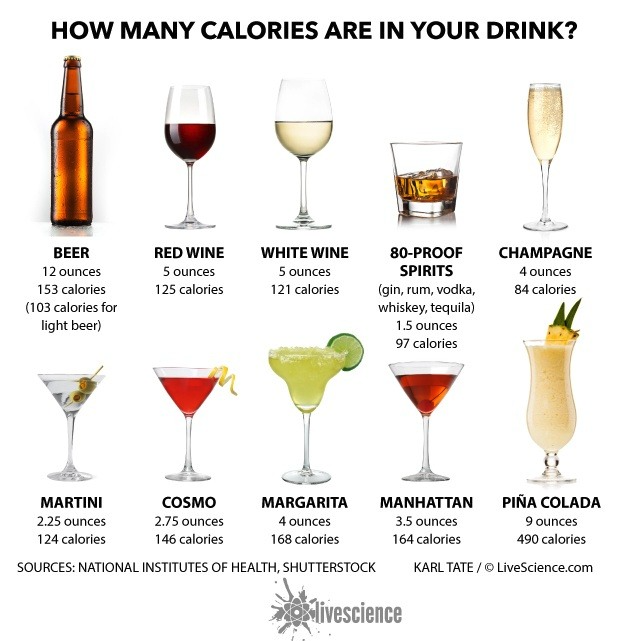So, You're Sober Curious?
There’s no shortage of jokes about how hangovers get worse as we age. What once was a dull ache cured by a CrunchWrap Supreme has become a 3-day affair where saying that we feel like the Corpse Bride is probably an understatement. Shockingly, we don’t love that hangover feeling and yet… sometimes… we find ourselves two glasses of chardonnay deep and debating on a third.
At least nowadays we debate. And we drink wine rather than Green Apple Smirnoff. But, still, it makes us wonder why we even drink? What’s the benefit? What if we didn’t? And, that is why we’re sober curious.
Alcohol & the Body
Being sober curious is a lot easier when you consider the health impact of drinking alcohol. After just one or two drinks alcohol will begin to impair your balance, coordination, impulse control, memory, and decision-making. This puts you at greater risk for accidents, injuries or dumb a$$ decisions - which is a shock to absolutely no one who’s ever had one too many drinks.
Alcohol consumption also contributes to a poorer nutritional status for a few reasons. First, when inebriated many people are likely to make worse choices in terms of the foods or drinks that they consume. Aforementioned CrunchWrap Supreme we’re looking at you. And, this often extends past the time of alcohol consumption and into the next day during the ‘hangover phase’.
People who overuse alcohol are also more likely to be deficient in necessary nutrients like folate, vitamin B6, thiamine, and vitamin A. Lastly, alcohol is calorically dense and can often lead to weight gain, or difficulty losing weight.
Photo Credit: Quora
But, the long-term impacts are even worse and include risks of high blood pressure, heart disease, liver disease, digestive problems, increased risk of certain cancers, and decreased immune strength. There’s also the risk of developing alcohol use disorder (AUD). AUD is defined as “a medical condition characterized by an impaired ability to stop or control alcohol use despite adverse social, occupational, or health consequences.” And, while many people feel that they could stop drinking ‘whenever they want’, the path to AUD can be a slippery slope. It might be helpful to ask yourself if in the past year you’ve experienced any of the following:
Had times when you ended up drinking more, or longer, than you intended?
More than once wanted to cut down or stop drinking, or tried to, but couldn’t?
Spent a lot of time drinking, being sick from drinking, or getting over other aftereffects?
Continued to drink even though it was making you feel depressed or anxious or adding to another health problem? Or after having had an alcohol-related memory blackout?
What Is Sober Curious?
The “Sober Curious” movement started as a result of challenges like “Dry January” when people who overindulged on alcohol decided to take a break from it for a month. Basically, sober curious people are choosing to avoid alcohol for personal wellness reasons even though they might not consider themselves “fully sober”. This provides more flexibility than embracing total sobriety which can make it an easier spot to start for some people who consume alcohol regularly. With time, the movement has grown to include social media, podcasts, books and other forms of media supporting the idea of being sober curious.
Where to Start?
Almost anyone who drinks alcohol regularly can benefit from being sober curious. Plus, it doesn’t have to be a permanent change though many choose to make it one. To get started, it helps to evaluate your current alcohol use including how often you drink and how much. It’s also helpful to think about the environments you choose to drink in and how you feel when you’re drinking. Once you feel like you understand your current habits:
1. Create a plan
Do you think it makes the most sense to stop drinking altogether for set period of time? Like two weeks, a month or even a year? Or, do you think it might make more sense to dip your toe in the sober pool by only drinking one night per week rather than three nights. This could also look like having only two drinks in a day as opposed to three. It’s important that you start in a way that feels manageable for you.
2. Find your support system
Sober curiosity works best when it’s paired with support from friends or family. However, this isn’t always the case. Some people are met with disapproval or questioning when they choose to become sober curious. If that’s the case for you, don’t be afraid to seek outside resources and support. Social media can be a good spot to start, though some cities and communities may also have support groups or events.
3. Pick a drink free hobby
Many people drink when they socialize, but that doesn't have to be the case. Changing up your hobbies to include more sober-focused options like hiking, pickle-ball, meditation, reading or crafting can also be a great way to support a drink-free lifestyle. Plus, you’ll feel a heck of a lot better the next day.
If you are struggling with an active addiction or AUD, we recommend that you seek additional professional assistance with becoming sober.
This article is for informational purposes only and it not intended to be used in place of professional advice, medical treatment, or professional care. This article is not intended to be and should not be a substitute for professional care, advice or treatment. Please consult with your healthcare provider before changing any health regimen. This article is not intended to diagnose, treat, or prevent disease of any kind.

